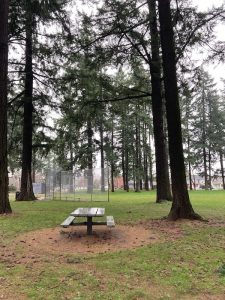BALL x PIT
Jan. 5th, 2026 09:06 amI bought BALL x PIT during the Steam winter sale, which I mention because it is theoretically still the Steam sale for a few more hours and I don't want to deprive anyone else of the sale opportunity, although the game is reasonably cheap anyway. It is the new hotness of "roguelite games that have combined roguelite meta-progression with some other genre of popular game," most recently exemplified by Balatro (roguelite poker), Vampire Survivors (roguelite bullet-heaven, which is of course a variant of bullet-hell shooters) and my beloved Slay the Spire (roguelite deckbuilder, and, yes, I am counting down the months until the sequel hits Early Access; I would count down the days if they had said anything more specific than "a Thursday in March").
So BALL x PIT is a roguelite version of Breakout. Or Pong, I guess, if you prefer. You shoot bouncy balls at enemies. The balls have powers like poison and lightning and whatnot. You level them up and then combine them to make different balls with more powers. In between levels you retreat to your base, which is full of buildings and resources and so on that you arrange in order to have balls bounce around them with maximum efficiency like if SimCity were pinball, and then you build buildings that buff your characters. They have this gameplay loop down solid. It's fun.
Anyway, I am posting because I wanted to mention the accessibility options, since I watched a bunch of streamers and read a bunch of reviews, could not figure out if I could play this, bought it anyway, and then discovered I could.
So you can play this game either with keyboard/mouse or with a controller. If you're playing with keyboard/mouse, it's WASD to move and mouse to aim/fire, my least favorite control scheme. If you're playing with a controller, it's left stick to move, right stick to aim, right trigger to fire. (There's an option to aim in the direction of movement, but sadly only if you're using a mouse.) I will say that you can play this while not being especially great at aiming, because the balls will eventually bounce approximately where you want -- it's not like playing an actual shoot-'em-up.
You can remap the controls if you need to (Settings > General, then scroll down) but for me the most useful general thing is the ability to turn autofire on, which you can do while playing. Your character slows down a bit if you turn this on, but there are buffs during the game to bring your movement speed up, so it's not so bad. Then you just need to aim and move (and not fire), and I can do left and right stick with one hand if I have my 8bitdo Lite SE controller.
However, there are points where this game becomes an actual bullet-hell shooter. You can shoot down some projectiles, but not all of them, and the boss of the first stage -- for example -- shoots a bunch of intricate projectiles that you do in fact have to just dodge. Now, I bought this game anyway and figured I was just gonna die a lot, because I can't dodge worth a damn, but it turns out the devs thought of that! Under Settings > General, turn on "Allow slower movement speed."
The regular game has three movement speeds you can cycle through while playing, which I knew, and I nearly didn't select this option in the settings because I figured this was how you opted into that, but it turns out the three regular speeds are there anyway. What this option does is turn on super-slow "1/4" and "1/2" speeds so you have five speeds to choose from. Yay!
(As far as I can tell, this does not lock you out of achievements; you can get an achievement for completing a level even if you have fought the boss at half-speed. I don't know if there are any locked achievements for completing a level at a specific speed, in which case those are probably still locked.)
So it turns out that I can definitely mostly dodge projectiles in the boss fight in a bullet-hell game at half-speed and that there's still quarter-speed available if I need it. I hadn't seen any of the reviews mention this setting, so I thought I would bring it up. You too can play BALL x PIT even if your reflexes are not usually up to par for bullet-hell shooters!



